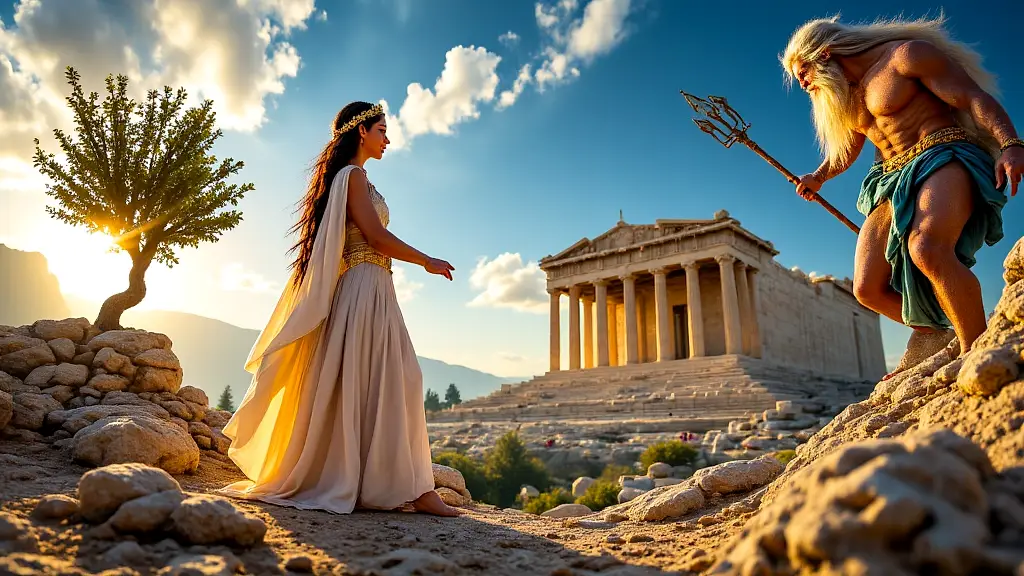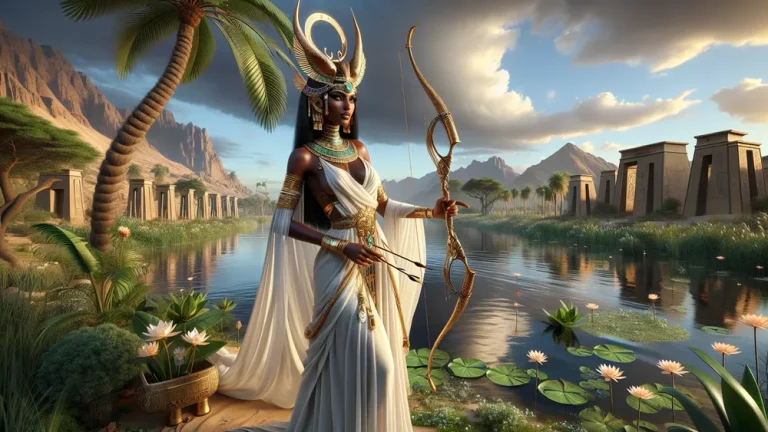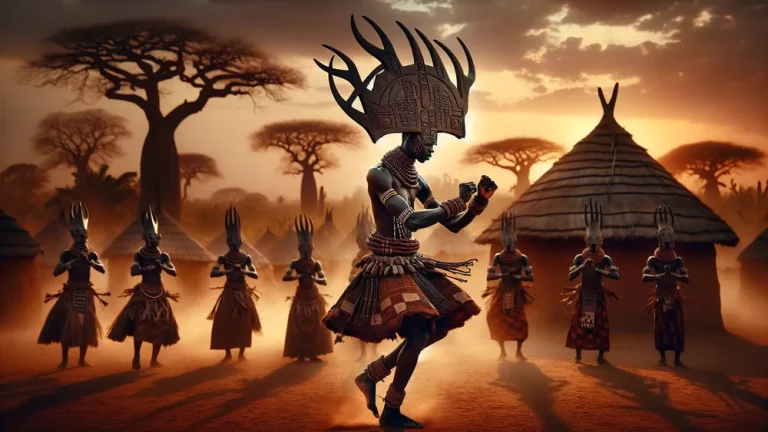List Of Greek Knowledge Deities And Their Roles In Mythology
Think about wisdom not just as something you learn, but as something sacred. In Greek mythology, knowledge wasn’t an abstract idea. It took the form of gods and titans who controlled everything from war strategy (Athena) to poetry (the Muses). These gods weren’t just ideas. They had a real impact on people’s lives.
Key Points:
- Athena, born from Zeus‘ head, stands for smart war plans and crafts, with symbols like the owl and olive tree.
- Apollo handles prophecy, music, and healing, speaking through the Delphi oracle and winning music contests.
- Hermes, the messenger god, invents things like the lyre and guides souls to the Underworld with his winged sandals.
- Prometheus gives fire to humans, gets punished by Zeus, but helps people grow smarter and stronger.
- The nine Muses each inspire a different art or science, like poetry, history, or dance.
- Metis, a Titaness of wisdom, gets swallowed by Zeus but later gives birth to Athena from his head.
- Hephaestus, the smith god, builds clever things like automatons and Pandora, but also uses his skills for revenge.
For example, cities like Athens built their identity around Athena’s gift of the olive tree. Meanwhile, Delphi’s Oracle, who spoke for Apollo, swayed kings and settlers with their words. However, myths aren’t all the same. Different versions exist. Was Athena born from Zeus’ head, or did she come from an ancient sea? Here, we’ll sort out these different versions.
We’ll explore how gods of wisdom, craft, and prophecy reflect the values of ancient Greece. Their stories still matter today, whether in schools (Athena’s strategic mind) or hospitals (Apollo’s healing arts). Let’s take a closer look at these fascinating figures.
List Of Greek Knowledge Deities: Overview and Key Facts
| Deity | Domain(s) | Symbols | Key Myths (Variations Noted) |
|---|---|---|---|
| Athena | Wisdom, strategic warfare, crafts | Owl, olive tree, aegis | She sprang from Zeus’ head[^1] and later judged Arachne’s weaving contest. The people of Athens worshipped her as their protector. |
| Apollo | Prophecy, music, healing, archery | Lyre, laurel wreath, sun | He spoke through the Oracle of Delphi, won a music contest against Marsyas, and shot deadly arrows of disease in the Iliad. |
| Hermes | Communication, travel, trickery | Caduceus, winged sandals | Hermes made the first lyre from a tortoise shell. He also guided souls to the Underworld. |
| Prometheus | Foresight, fire, human progress | Torch, chains | He stole fire for humans, and Zeus punished him forever. Different myths disagree on whether he was a hero or a troublemaker[^2]. |
| The Muses | Inspiration (poetry, history, etc.) | Scrolls, instruments | There were nine Muses, and each one oversaw a different art form. Calliope, for example, ruled over epic poetry. |
| Metis | Cunning wisdom, strategy | None (often depicted as a thought) | Zeus swallowed her, but she later gave birth to Athena from his head. |
| Hephaestus | Invention, metallurgy, fire | Hammer, anvil, forge | He built Pandora, crafted Achilles‘ armor, and was thrown off Olympus as a baby. |
[^2]: In Prometheus Bound, he’s a rebel, but Hesiod’s version paints him as a trickster.
Analogies for Clarity:
- Athena was like a brilliant general who also protected scholars and craftsmen.
- Hermes handled messages, negotiations, and clever tricks – almost like an ancient multitasker.
- The Muses worked like a creative team where each member had a specialty, such as poetry or music.
Note: Some myths overlap. For example, Apollo’s healing powers connect to his son Asclepius, which we’ll discuss later.
The Greek Gods of Wisdom and Knowledge
Many gods influenced Greek thought, but some were especially known as the main guardians of wisdom, strategy, and innovation. While they shared these domains, each one has their own distinct story worth knowing.
Athena: Wisdom, War, and Clever Plans
Athena was known for her sharp intelligence, shown clearly in her unusual birth story. She emerged fully armored from Zeus’ head, which represents how strategic thinking can appear suddenly. Her symbols show different aspects of her power. The owl represented nighttime knowledge, while the olive tree showed her gift of both peace and wealth to Athens.
She became the city’s permanent protector after winning a competition against Poseidon[^1]. The aegis, her goat-skin shield with Medusa’s head, worked as both armor and a way to frighten enemies. Many myths show Athena preferring clever solutions to brute force. When the weaver Arachne claimed she could outdo the goddess, Athena changed her into a spider. This served as a warning against excessive pride.
Meanwhile, she helped Odysseus for twenty years, from planning the Trojan Horse to escaping Poseidon’s anger.
In Athens, Athena’s influence covered several important areas:

- Military Strategy: She assisted warriors like Diomedes in the Iliad and defended cities as Athena Nike, meaning “Victory.
- Cultural Support: She encouraged arts including pottery, where artists often painted her image, and the Panathenaic Festival.
- Justice: She oversaw important legal cases, including Orestes’ trial for killing his mother.
Athena’s sharp mind and strategic nature made her a powerful protector of Athens, helping in war, arts, and justice while favoring cleverness over brute force.
Apollo: Prophecy, Music, and Healing
Apollo was perhaps the most versatile Olympian god, overseeing prophecy, music, and healing. Born to Zeus and Leto, his seemingly unrelated domains actually connected through their association with civilization’s higher arts. The golden lyre was linked to music, which the Greeks studied mathematically, while the laurel wreath represented both poetic achievement and the prophetic visions at Delphi. There, his priestess the Pythia delivered famously ambiguous prophecies that influenced Greek politics for centuries.
Apollo’s myths reveal his complex nature. While he established his oracle at Delphi by killing the serpent Python, some versions say this occurred before his birth. He later atoned for the killing, showing that even gods followed moral codes. In the myth of Marsyas, a satyr who challenged Apollo to a music contest, the god’s victory led to Marsyas’ brutal punishment.
This showed that Greeks believed divine art was beyond mortal challenge. The same god who sent plagues during the Trojan War could also stop them, functioning similarly to an early public health authority.
| Domain | Symbols | Key Myth | Significance |
|---|---|---|---|
| Prophecy | Laurel wreath, tripod | Oracle at Delphi (Pythia’s trances) | Most important Greek oracle that guided major decisions |
| Music | Lyre, plectrum | Contest with Marsyas | Demonstrated divine superiority in musical arts |
| Healing | Bow, snake | Sending and curing plagues (Iliad) | Early link between medical and religious practices |
| Archery | Silver bow | Defeating Python | Showed both destructive and cleansing abilities |
Hermes: Messenger, Trickster, and Words
Hermes represented Greek values of cleverness and mischief. On his first day of life, he stole Apollo’s cattle and invented the first lyre using a tortoise shell, immediately showing his talent for inventive thinking. As the messenger god, his winged sandals made him the fastest being in existence.
His caduceus, a staff with two snakes wrapped around it, became both a diplomatic symbol and later a medical emblem.
While primarily known as a communicator, Hermes also served as a psychopomp, guiding souls to the Underworld. This important duty showed that even tricksters had serious roles. He worked in multiple domains:
- Divine Messenger: Delivered Zeus’s commands throughout all worlds
- Inventor: Developed the first musical instrument and writing systems
- Trickster: Stole from Apollo but avoided punishment through cleverness
- Guide: Protected both living travelers and deceased souls
- Symbols: Winged sandals (speed), caduceus (diplomacy), tortoise (creativity)
Hermes didn’t just carry messages. He created writing systems to preserve them, serving as the gods’ scribe and mediator between divine and mortal languages.
Prometheus: The Titan Who Gave Fire to Humans
The Titan Prometheus defied the gods by stealing fire from Mount Olympus and giving it to humans, an act that resulted in severe punishment but improved human life permanently. According to Hesiod’s account, Prometheus – whose name means “Forethought” – created humans from clay. He then carried the divine flame to earth inside a hollow fennel stalk.

This fire represented more than warmth; it enabled human progress through metalworking, cooking, and other technologies. Zeus punished Prometheus brutally. The Titan was chained to a mountain in the Caucasus, where an eagle ate his liver every day. Because his liver regrew each night, this torture lasted for thousands of years until Heracles finally intervened.
While Hesiod describes the basic myth, Aeschylus’ tragedy Prometheus Bound presents a more detailed version. The play depicts Prometheus as a benefactor who suffered for giving humans mathematics, medicine, and other arts. He also knew a prophecy about Zeus’s potential overthrow, which made his punishment particularly significant. This portrayal became an important example of resistance against oppressive authority, demonstrating how Greek mythology explored moral questions through divine characters.
What distinguishes Prometheus from other knowledge deities is his focus on practical knowledge rather than abstract thought. His story explains why human progress often involves struggle, and why gods might fear empowered mortals. Beyond fire, some traditions claim Prometheus taught humans architecture, astronomy, and animal domestication – essentially providing the foundations of civilization before being punished for his generosity.
Forgotten Gods of Wisdom and Skill
Athena and Apollo get most attention when people talk about divine wisdom in Greek mythology. But many other gods existed who focused on specific types of knowledge and skilled craftsmanship.
The Muses: Nine Goddesses of Inspiration
Zeus and Mnemosyne (Memory) conceived the Muses over nine nights. These nine sisters represented the Greek belief that great creations required both divine inspiration and accumulated knowledge. While they inspired artists, each Muse actually governed a specific area of art or science. Ancient poets would begin works by invoking the Muses, asking for direct access to divine creativity.
Their home on Mount Helicon contained the Hippocrene spring, which was created when Pegasus struck the ground with his hoof.
Here are all nine Muses and their specialties:
- Calliope – Epic poetry (she carries a writing tablet)
- Clio – History (she holds scrolls or books)
- Erato – Love poetry (she plays a lyre)
- Euterpe – Music (associated with flutes)
- Melpomene – Tragedy (shown with a tragic mask)
- Polyhymnia – Sacred hymns (depicted as veiled)
- Terpsichore – Dance (shown in dancing poses)
- Thalia – Comedy (carries a comic mask)
- Urania – Astronomy (holds a globe)
Unlike other gods who might withdraw their gifts, the Muses’ inspiration remained available to those who knew how to develop and use it. This explains why we now call places of learning “museums,” which originally meant shrines to the Muses.
Metis: The Swallowed Titaness of Wisdom
Metis, whose name means “cunning intelligence,” had a complex relationship with Zeus. First she helped him gain power, then became his greatest fear. As the Titaness of wisdom, she came up with the plan that made Zeus free his swallowed siblings, which helped win the Titanomachy. However, when Metis became pregnant, an oracle predicted her child would be wiser than Zeus. Zeus responded by swallowing Metis whole.
This gave him her wisdom permanently while preventing the predicted child’s birth. Despite this, Athena later emerged from his head. The myth shows two Greek concepts of wisdom: metis (practical cunning) versus sophia (philosophical wisdom). By absorbing Metis, Zeus didn’t just remove a threat. He made strategic intelligence part of his rule, becoming the first Olympian to combine power with cleverness.
The story also shows how Greeks saw wisdom as something with physical presence that could be consumed, similar to how we gain knowledge through study today.
Zeus swallowed Metis to keep her wisdom for himself, but Athena still sprang from his head, blending cleverness with power in Greek myths.
Hephaestus: Master Inventor and Smith
Hephaestus, the limping god, ran his main workshop beneath Mount Etna, where volcanic fires powered his forges. While other Olympians had natural powers, he worked with metal and fire to create remarkable objects that combined magic with early technology. His inventions included self-moving tripods that served the gods, golden maidens with human-like intelligence, and Talos, the bronze automaton that guarded Crete.

Two creations show Hephaestus’s dual nature as both creator and avenger. He made Pandora, the first woman formed from clay, who carried a jar that held all worldly evils. He also crafted a golden throne that trapped his mother Hera, getting revenge for abandoning him at birth.
These stories reveal how Greeks saw technology as both beneficial and dangerous – it could serve the gods but also create objects that threatened their power.
Stories That Show the Gods’ Wisdom
We see the gods’ wisdom most clearly in stories where it affected both gods and humans. Here are three myths that show how they used their knowledge. These examples reveal why the Greeks respected their deities’ understanding of the world.
How Athena Won Athens Over Poseidon
When King Cecrops needed a patron god for Athens, Athena and Poseidon held a contest. Poseidon struck the Acropolis with his trident, creating either a saltwater spring or the first war horse. Athena planted the first olive tree near the Erechtheion, showing its many uses. The tree provided food, oil for lamps and cooking, and wood for building. Unlike Poseidon’s gift, it could grow in Greece’s dry climate.

Different versions explain how Athens chose its patron. Some say Cecrops decided alone, while others claim the citizens voted. Poseidon’s gift represented military strength, but Athena’s olive tree promised long-term prosperity. Olive oil later became Athens’ main export, which funded the city’s golden age. According to legend, the original tree burned during Persian attacks but reportedly grew back overnight, becoming a symbol of Athenian resilience.
Archaeology proves olives were important in Athens long before this myth appeared. The tree’s evergreen leaves stood for lasting peace, matching Athena’s wise nature. Visitors to the Acropolis today can see olive trees said to descend from Athena’s original gift, making this one of few Greek myths with a physical connection to modern times.
The Oracle of Delphi: Apollo’s Voice on Earth
For nearly 1,000 years, the Oracle of Delphi served as the most important religious site in Greece. The Pythia, Apollo’s priestess, gave prophecies while in a trance caused by gases that rose from a crack beneath the temple. Selected from local peasant women, she would chew laurel leaves and sit on a bronze tripod above the opening.
Her mysterious answers were later rewritten by priests into formal verses. Scientists have found that Delphi sits where two fault lines meet, releasing ethylene gas that can alter mental states. The oracle’s power came from its unclear predictions. When King Croesus asked about attacking Persia, he was told: “If you cross the river Halys, a great empire will fall.”
The prophecy didn’t say which empire would fall. Similarly, Oedipus‘ parents heard their son would “kill his father and marry his mother,” but weren’t told adoption could avoid this fate. These vague answers meant the oracle couldn’t be wrong, and the temple grew extremely wealthy from the fees people paid for advice. Even today, the sayings carved at Delphi’s entrance – “Know thyself” and “Nothing in excess” – remain useful advice.
Prometheus’ Eternal Punishment and Human Hope
Zeus gave Prometheus a severe punishment for defying him. The Titan was chained naked to the Caucasus mountain with unbreakable adamantine shackles. Every day, an eagle would tear out his liver, which grew back each night. This created a cycle of constant pain. Ancient Greeks believed the liver controlled emotions, making the torture both physical and mental. The remote location emphasized Prometheus’ complete isolation.
The story changes when Heracles arrives during his labors. He kills the eagle and frees Prometheus, but only because Zeus allowed it. Some versions say Zeus agreed because Prometheus knew about a future threat to his power. This unexpected outcome shows the Greek view of divine justice – Zeus kept his authority while showing mercy. The myth carries two important messages.
It shows the heavy price of giving knowledge to humans, but also why humans remained grateful to Prometheus. Ancient Greeks honored him with torch races that continued for centuries.

Prometheus suffered endless agony, chained to a mountain where an eagle ate his liver daily until Heracles freed him, revealing the Greeks’ mix of harsh justice and unexpected mercy.
FAQs
1. Which Greek deity is closest to modern education?
The Greek deity closest to modern education is Athena, goddess of wisdom, strategy, and the arts.
2. How did Metis influence Athena’s birth?
Metis influenced Athena’s birth when Zeus swallowed her to evade a prophecy, leading to Athena’s eventual emergence from his head.
3. Why is Prometheus considered a knowledge deity?
Prometheus is considered a knowledge deity because he gifted humanity with fire and foresight, enabling progress and intellectual growth.
4. Are the Muses related to Apollo?
The Muses are related to Apollo, as he often led them in music and poetry.







